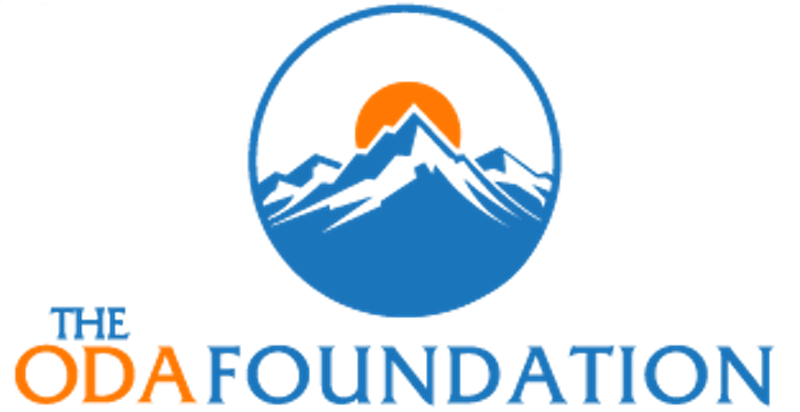
Oda Foundation Research
A leading source of critical data on health, water, and more.
Oda Foundation is a leading source of accurate information that draws awareness and funding to severe needs in Kalikot’s communities.
Research includes Patient Demographics, the landmark Kalikot Maternal Health and Family Planning Report, the Odanaku Water Survey, and more. This work is critical to creating accurate programs, evaluating need, and tracking impacts.
I am For Women 2022-2023 Project
Full Project Report
The Ma for Mahila project - Meaning ‘I am for women’, was designed to tackle the challenge of poor menstrual management and the practice of dangerous menstrual practices in rural Nepal. The district of Kalikot, located in remote mid-western Nepal, presents a complex landscape for understanding menstrual health and gender inequality. With sparse local data available, insights drawn from neighbouring districts with similar cultural, topographical, and socioeconomic contexts are crucial. The need to gather baseline data for future project implementation was also vital for this project. The project built off of previous initiatives by the Oda Foundation, which highlighted the importance of community-based education and sustainable solutions, underscoring the need for localised strategies to empower women and promote lasting societal change.
98% expressed comfort with the workshop content
32.7% successfully made additional pads after the workshop
33% reported teaching others how to make a pad post-workshop (participants were encouraged to share their newfound knowledge with family and community members).
50% reported intending to teach other in the future, highlighting a positive ripple effect.
62.7% reported at least one behaviour change that abandoned traditional menstrual practices, including improved diet or not sleeping in a cow shed.
Notably, 31.6% transitioned to sleeping indoors, a crucial step in mitigating health risks and societal stigma associated with menstruation.
Despite strides, 37.3% of participants did not report behavioral changes, citing fears of divine repercussions (38.7%), underscoring entrenched cultural beliefs
2023 Maternal Health and Infant Nutrition Status Report
The 2023 Maternal Health and Infant Nutrition Status Report was conducted to investigate the incidence of infant malnutrition in the Mahabai-2 Municipality and existing health disparities that may be contributing to the poor health outcomes of infants. The aim of this survey was to determine where and in what capacity the Oda Foundation may be able to intervene to improve the health of the community.
Topics covered included sociodemographic information, maternal behaviors, gestational health, and infant feeding and health. Key findings were:
46.8% of infants participating in the study were wasted, stunted, or both
89% of women reported attending at least 4 Antenatal Care Visits in their most recent pregnancy
96% of participants delivered their last baby at a birthing center
25.5% of mothers had previously lost a child under the age of 5 years
51% of respondents were under the age of 19 when they had their first child
About 17% of mothers surveyed reported having difficulties breastfeeding
2022 Mahabai Community Development Report
The 2022 Mahabai Community Survey was conducted to monitor and evaluate community development. In order to measure progress systematically and accurately, the methodology and survey coverage area match those of the 2017 Odanaku Household Survey. The aim of the survey was to identify gaps in progress and opportunities for intervention and advocacy.
Key topics covered included demographics; household amenities; agriculture and nutrition; water, sanitation, and hygiene (WASH).
On average, households in the survey coverage area have enough food from their own fields to sustain themselves for less than 4 months
75% of households consume vegetables fewer than 4 times per week
75% of participants said they have difficulty accessing water
28% of households do not have a toilet
97% of households have at least 1 family member vaccinated against COVID -19
97% of respondents felt that giving birth at a birthing center or professional medical center is better than giving birth at home
2017 Patient Demographic and Diagnosis Report
Top diagnoses: gastritis, fever, URI (upper respiratory infection), COPD (chronic obstructive pulmonary disease), arthritis, injury / burn
Travel time: 64% of patients walk 1 hour or more; at least 3400 patients a year walk more than 3 hours
Cost of care per patient: $2.28 USD
Patients per year: averaging 12,450; 30-75 patients per day
2016 Kalikot Maternal Health and Family Planning Report
93% of mothers cite their full-time job as tending home, fields, and family
Women in Kalikot begin having children on average at the age of 19.5; the youngest age is 13, and most women have children well into their early 40s
20% of mothers in Kalikot have had at least one child die before age 5
61.7% of mothers have slept outside their homes with their newborn for an average of 12.5 days (due to rules surrounding chaupadi)
The Oda Water Survey: Water Retrieval, Water Use, and Sanitation
The average wait time for water at the tap is just over 2 hours.
High caste individuals use on average twice as much water per day as do low caste individuals.
Although the community knows the effects of consuming dirty water, 72% of people don’t treat their water.
98% of the community says they need more water, and 61% stated their primary need of more water is for agriculture and food production.
The Odanaku Household Survey Report
45% of Oda’s current population is children
89% of families in Oda are employed in the agriculture sector, either farming their own land or working for others in the fields
3 months: the average number of months a family can sustain themselves on their fields
82% of households are without a ventilated stove
The average home is shared between families and has 12 people; the maximum number of people living under one roof in Oda is 40 people







